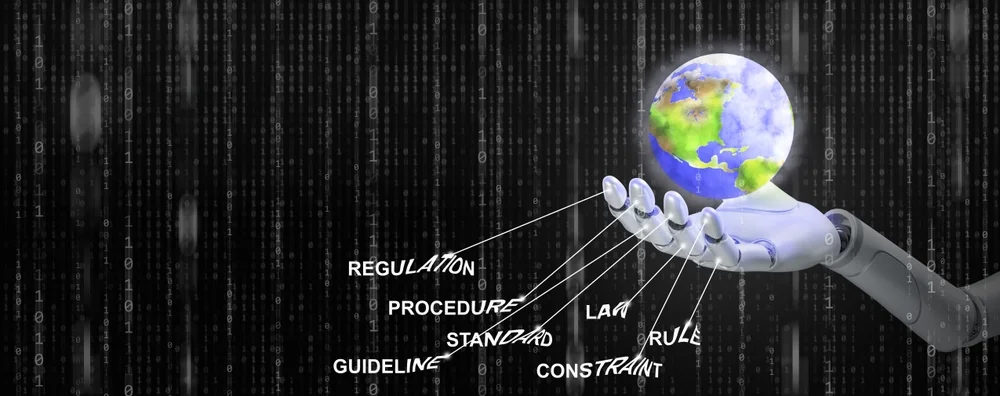.avif)
The Nadir of the Climate Change Movement
The prevailing winds are blowing not toward more windmills but toward common sense on energy.
It is possible that the Trump Administration is going to deal the death blows to the long-running climate change hysteria and government hostility to fossil fuels, not just in the United States but around the globe.
The Trump Administration has moved well beyond merely supporting increased oil and natural gas production. It has also launched steps to dismantle the foundations of anti-energy climate policy, in particular, a proposed reversal of the so-called "endangerment finding" that gave the EPA jurisdiction to regulate greenhouse gases, which were never explicitly included in any of the various Clean Air Acts passed over the last 50 years. Trump's EPA is also proposing to revise the EPA's flawed "social cost of carbon" analysis, which is used to justify costly green energy schemes.
Energy Secretary Chris Wright summed up the attitude in a recent speech: "The Trump administration will end the Biden administration's irrational, quasi-religious policies on climate change that imposed endless sacrifices on our citizens." We have indeed raised global atmospheric CO2 concentration by 50% in the process of more than doubling human life expectancy, lifting millions of the world's citizens out of grinding poverty, launching modern medicine, telecommunications, planes, trains, and automobiles, too. . .
Running the math on what might have been the benefits from these [Biden] policies yields perhaps only a few hundredths of a degree reduction in global temperatures in the year 2100. The Trump administration intends to be much more scientific and mathematically literate.
I doubt the climatistas know what's about to hit them. Unlike the defensive crouch of previous Republican administrations (including Trump I to some extent), the new Trump team is going straight at the heart of the entire climate change framework. Start with the aforementioned "social cost of carbon" (SCC), an economic calculation of the present value of projected future climate damages if we don't suppress fossil fuel use. It is an arcane economic analysis, the assumptions of which I won’t delve into here, except to note the variation in the estimate over the last 15 years. The Obama EPA settled on an SCC estimate of $52 per ton; the first Trump EPA calculated the SCC at $7 per ton, and the Biden EPA came up with $185 per ton. In other words, this is all economic flim-flam, with the high numbers necessary to justify monumental energy regulations and subsidies for costly “green” energy.
The biggest problem here, regardless of the number you settle on, is that any estimate of the social cost of carbon should also account for the social benefits of carbon, which vastly outweigh the climate costs that preoccupy the climatistas. This aspect of the matter is understudied because the results would kill off almost all the climate crisis industry at a stroke. One of the very few to do this is Richard Tol, a highly regarded Dutch environmental economist. In 2017, he concluded that the social benefit of carbon is over $400 per ton, which is a multiple of even the highest cost estimates of the climatistas and the bureaucrats. This is the kind of benefit Wright has in mind with his statement that fossil fuels are responsible for launching "modern medicine, telecommunications, planes, trains, and automobiles, too."
That's only the beginning of the massive benefits of large-scale affordable energy over the last century, but these incredible achievements are seldom seriously considered in the "consensus science" assessments of the UN's Intergovernmental Panel on Climate Change (IPCC). It is necessary to make the sober point that if we ceased using coal, oil, and natural gas instantly, as the most fervent climatistas demand in their street protests and art museum vandalism stunts, hundreds of millions of people around the world would be dead in a week.
Likewise, overturning the "endangerment finding," which the Obama EPA adopted to launch its plan to nationalize America's electric utility industry, represents a frontal challenge to existing climate policy. It is unlikely that a thorough reevaluation of the risks associated with greenhouse gases will reveal any discernible health hazards, let alone any that would justify spending trillions of dollars on green energy.
At this point, someone might well raise the question of whether Trump's moves will last or whether they will be promptly reversed by the next Democratic administration, for whom the "climate crisis" will remain a core priority (or whether some of Trump's proposed changes will encounter a legal roadblock). This is a plausible scenario until we consider the startling proposition that the Trump Administration's moves are, in fact, a lagging indicator of where the climate change story has been heading for some time now, unrecognized by the media and most politicians.
Climate change has been the premier environmental issue for almost 40 years now and appears to be running through what the eminent political scientist Anthony Downs identified in a classic 1971 article in The Public Interest as "the issue-attention cycle." Downs outlined a five-stage cycle through which political issues of all kinds typically progress. Experts and interest groups begin promoting a problem or crisis, which is soon followed by the alarmed discovery of the news media and broader political class. This second stage, significantly, typically includes a large amount of euphoric enthusiasm—you might call this the “dopamine” stage—as activists conceive the issue regarding global salvation and redemption. (Al Gore is the premier example of this aspect of climate change.)
Then comes the third or "hinge" stage, where there is “a gradually spreading realization that the cost of ‘solving’ the problem is very high indeed.” This is where we have been with climate change from almost the beginning. “The previous stage,” Downs continued, “becomes almost imperceptibly transformed into the fourth stage: a gradual decline in the intensity of public interest in the problem.” Then, in the fifth or “final [post-problem] stage,” Downs concluded, “an issue that has been replaced at the center of public concern moves into a prolonged limbo—a twilight realm of lesser attention or spasmodic recurrences of interest.”
Climate change has arrived at Downs' fifth stage. Despite billions spent for climate crisis agitprop, the backing of a compliant media, the surrender of much of big business (including many fossil fuel companies), and the endless braying of opportunist politicians, opinion surveys consistently find that the public does not buy the "climate crisis," ranking it at the bottom or next to the bottom of their major issue concerns.
Downs predicted in his article—written less than a year after the first Earth Day launched the modern environmental activist movement—that the issue-attention cycle for environmental issues would be longer than for most other matters, which has certainly proved to be the case for climate change.
The Trump Administration's bold disposition to turn entirely away from the madness represents a short fuse riding on a long wave to mix metaphors. One ironic aspect of the Biden Administration's substantial spending on green energy is that the U.S. was at least a decade behind Europe in this regard. Led by Germany's "energiewende" ("energy revolution"), Europe spent over a trillion Euros for green energy, only to see their modest decarbonization trends stall and go into reverse, with Germany and other nations having to restart coal-fired power plants and diesel generators, extending oil and natural gas production after having intended to reduce production, and reversing closures of nuclear power plants. The inability to meet the rising costs of green energy led to the downfall of the German government last fall. If you pay close attention, you can see that European political leaders have been backtracking on climatism for some time now, muting their rhetoric—always the cheapest commodity for all politicians—about the climate crisis and ambitious climate goals.
Even John Kerry, climate catastrophist-in-chief, has made subtle but telling shifts in his climate rhetoric. In 2021, Kerry's standard climate change stump speech claimed, “Currently, as we’re talking today, we are regrettably on course to hit somewhere between 3, 4 degrees at the current rate.” But by 2023 Kerry's numbers changed: “We're currently heading towards something like 2.4 degrees, 2.5 degrees of warming on the planet." What changed? It turns out that even the so-called "consensus science" of the IPCC has begun to dial back its previous predictions of climate catastrophe, although the media haven't noticed or reported this. Give Kerry some credit for "following the science," as we are often urged to do.
The progress of climate change through Downs's "issue-attention cycle" does not mean that resource extraction industries won't continue to face hostile regulators, protracted litigation from activists, and biased treatment from the media. But for the first time in decades, the prevailing winds are blowing not toward more windmills but toward common sense on energy.
Steven F. Hayward is the Edward Gaylord Distinguished Visiting Professor at Pepperdine University's School of Public Policy.
Economic Dynamism
.jpg)
Do Dynamic Societies Leave Workers Behind Culturally?
Technological change is undoubtedly raising profound metaphysical questions, and thinking clearly about them may be more consequential than ever.

The War on Disruption
The only way we can challenge stagnation is by attacking the underlying narratives. What today’s societies need is a celebration of messiness.

Unlocking Public Value: A Proposal for AI Opportunity Zones
Governments often regulate AI’s risks without measuring its rewards—AI Opportunity Zones would flip the script by granting public institutions open access to advanced systems in exchange for transparent, real-world testing that proves their value on society’s toughest challenges.

Downtowns are dying, but we know how to save them
Even those who yearn to visit or live in a walkable, dense neighborhood are not going to flock to a place surrounded by a grim urban dystopia.

AI Needs Consumer Choice, Not Bureaucratic Control
The regulatory approach treats consumer AI as a problem to be solved rather than as another service best left to a competitive, dynamic market to provide consumers with autonomy and choice.

The Start-Up Paradox: The Coming Red Shift in Innovation
Despite London's success, the future of innovation is securely in American hands for the foreseeable future.





.jpeg)




.jpg)




